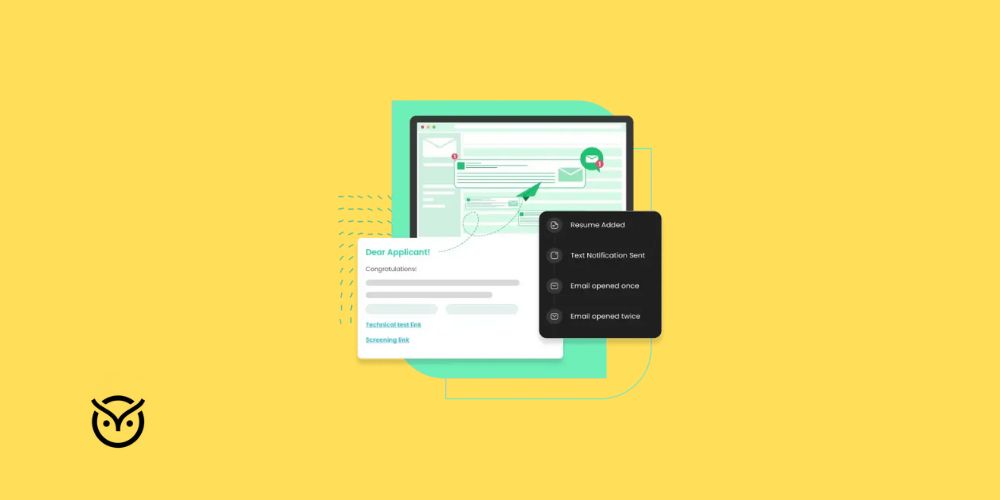
TL;DR
- Research the company before the interview.
- Arrive 10–15 minutes early — not too early, not late.
- Dress appropriately for the company culture.
- Keep your energy balanced — neither too low nor overexcited.
- Match your communication style to the interviewer’s tone.
- Stay focused — no distractions or zoning out.
- Prepare and rehearse common interview questions.
- Focus on how you can help the company, not just your achievements.
- Keep conversation professional; avoid oversharing personal details.
- Keep your phone off and out of sight.
- Speak respectfully about past employers and colleagues.
Eminem famously said, “You only get one shot!” As it turns out, that advice just applies to interviews as well.
Some of you out there need solid, direct advice regarding job interview dos and don’ts.
With hundreds of people applying and just one role to fill, hiring teams are quick to cut.
A weak handshake. A rambling answer. A bad vibe.
And just like that, you’re out.
For many, it’s not a lack of skills but a string of subtle mistakes that cost them everything.
In this blog, we’re pulling back the curtain.
You’ll learn the 11 most common interview mistakes and how to avoid them with clarity and confidence regarding interview dos and don’ts.
It’s not about being perfect. It’s about knowing the game—and playing it better than the rest.
1. You Walked In Clueless
Nearly half of employers, 47%, would pass on candidates who didn’t do their homework.
You showed up thinking your resume would impress them.
Not doing any research and having no clue about what the company does!
You didn’t know about the company’s product, their latest news, or who they compete against. It showed.
They want to see that you care enough to learn who they are.
If you don’t know the basics, why should they trust you with anything bigger?
What to do instead?
Do your homework.
Know what they do, who they serve, their vibe, their values, and even what they’ve been up to lately.
Bonus points if you bring up something they posted or shared.
Understand the role you’re applying for and visit the company site to explore their:
- Operational structure
- Market landscape and competitors
- Recent news and developments
- Mission and values
- Products or services
2. You Showed Up Late or Too Early
You arrived 25 minutes ahead, and now you’re left pacing outside.
On the other hand, arriving late to an interview shows that you cannot manage your time correctly and do not respect the interviewer’s time.
Either way, you are putting unnecessary pressure on the interviewer and yourself.
You will feel disoriented, and that state can negatively impact your performance.
What to do instead?
Aim for 10-15 minutes early.
If you get there any sooner, find a quiet spot nearby to wait.
Use the time to go over your notes, grab a coffee, or relax.
Plan your route ahead of time and expect possible delays.
Try to be on time, but if you are late, inform them quickly with a call or message.

3. Inappropriate Attire
Showing up in ripped jeans for a corporate role or wearing a three-piece suit to a startup that runs on hoodies and cold brew is a quick way to say, “I didn’t bother to check.”
Your outfit should match the tone of the place you’re trying to join.
What to do instead?
Business casual is your safest bet when you’re unsure what to wear.
If you’re still guessing, do a little harmless LinkedIn stalking to see what the team wears, or just ask the recruiter like a normal human.
Whatever the dress code is, clean and put together always beats clueless and crumpled.
4. Low Energy or Overenthusiasm
Looking sleepy in the interview or acting too hyped up is odd. Don’t seem like you’re about to nap or run a game show.
What to do instead?
Stay engaged and interested. Be present in the moment, show genuine interest, and keep your energy balanced.
The goal is simple:
- Read the room atmosphere
- Stay grounded
- Show them you care about being there.
5. Not Tailoring Communication Style
Walking into a professional interview and dropping slang like you’re texting a friend is a quick way to lose credibility.
They speak the same way in every interview, no matter who’s across the table.
It’s all about reading the room; some skip that step entirely.
What to do instead?
Start by paying attention. Listen to how the interviewer speaks and how the company describes itself online. Mirror the tone just enough to show you get it.
6. Not Paying Attention
It doesn’t seem very kind if you get distracted during the interview.
Some of us zone out during extended interviews and miss crucial details that might help us in the coming steps of the interviews.
You may be checking the time on your watch or looking distracted when the interviewer directly talks to you.
What to do instead?
Focus on the conversation and always maintain eye contact.
You can nod when the interviewer asks questions and be an active listener.
7. Not Rehearsing Common Questions
Everyone fumbles, but losing words during an interview can be embarrassing.
You might freeze when the interviewer asks:
- Tell me about yourself.
- Why do you want to work here?
- Why this role?
- How can you contribute to our company goals?
These might sound like cliche questions, but you must be well-prepared to nail your interview.
What to do instead?
Practice and rehearse common questions before an interview.
You can record yourself at home to structure your “Tell me about yourself“.
Be concise with your answers instead of using flashy words or jargon.
Fun fact: If you use the STAR method, you are 2.6 times more likely to be hired than other candidates.
Here’s how you can use an ace the STAR method:
STAR (Situation, Task, Action, Result)
8. Making it all about you
Most candidates fall into the pit of self-love and blabber about past achievements, their struggles, education, what they did last summer, and hobbies.
Spoiler alert: No one cares!
The interviewer cares about only one thing: How can you help the team?
To be more precise:
- How can you contribute to team OKRs?
- How can you reduce burn?
- How can you speed up slow processes?
- How can you manage and monitor crucial data?

What to do instead?
You must frame your experience and skills around the company’s needs and wants.
How can you help the team/company solve issues or save money?
The answer is in the job description; read it carefully and find the pain points.
Then, consider what you can do to be the best candidate for the job.
Are you good at:
- Delegating tasks
- Resolving conflicts
- Mentoring juniors
- Enhancing output
- Reducing cost
9. You Overshared
You shared personal stories unrelated to the job.
Don’t blur the line between personal and professional.
What to do instead?
Keep the conversation about your professional experiences and how they relate to the role.
You have to stick to relevant topics and discuss your skills, roles and responsibilities in your previous company, and your career.
Always try to build rapport but don’t treat it like an intervention or therapy session.
Here’s an example of oversharing and how you can overcome this:
Don’t say this:
“I have had a very bad year. I broke up with my ex and it’s draining me emotionally, and this is why I left my previous job because it was overwhelming for me to figure things out. Honestly, I need a fresh start.”
Say this instead:
“I took some days off to reflect on my career roadmap, and I realized I need to focus on job roles that align with my strengths in project management and team building. I am interested in this specific role because of your company’s focus on team growth and retention.”
10. You Glanced at Your Phone
Even for a second. Even if it was to check the time.
It screamed, “I’m not 100% here.”
What to do instead?
Switch off your mobile phones or put it in airplane mode, and toss it in your bag.
No glances, no vibrations. Just you and the conversation.

11. You Trashed a Previous Job
You said your last boss was “a micromanager” or your old team was “chaotic.”
It might seem you are being honest, but it can come across as bitter.
What to do instead?
Talk about what you learned, how you grew, and what you’re looking for next.
Keep it classy.
No employer wants to be your next complaint.
To make sure you make the most of this job opportunity, avoid the aforementioned mistakes and use actionable strategies that we have shared to enhance your interview performance.
Interview Drop-Offs: What The Numbers Reveal
The Numbers Behind Interview Success Rates
- Only 20% of interviewed candidates receive a job offer — a success rate of just 1 in 5.
- Just 2.4% of all applicants even reach the interview stage, highlighting the intense competition.
- Approximately 2% progress to a second interview; among them, only one in six secure the job.
Why Candidates Fail or Withdraw
- Poor preparation is a top reason for failure — 47% of candidates don’t know enough about the company.
- Lack of relevant experience leads 90.6% of employers to disqualify candidates.
- Weak nonverbal cues, like a lack of eye contact, cause failure in 67% of cases.
- Dishonesty on resumes results in automatic rejection by 64% of hiring managers.
- Misunderstanding questions or failing to answer directly is a common reason for rejection.
- Behavioral issues, such as poor punctuality, a negative attitude, or failure to articulate skills, also lead to interview failures.
Bottom Line
Remember your last interview – did any of these errors ring a bell?
Self-awareness is the first step toward improvement.
By identifying and resolving these challenges, you can better prepare for interviews and advance your professional development.
Welcome each learning opportunity and maintain your momentum through continuous self-improvement.




